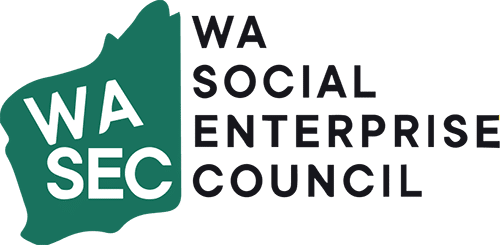While social enterprises form WASEC’s core voting membership, the broader social enterprise community, including supportive allies, organisations and individuals, is also welcome. WASEC offers membership options for these groups.
Do I have to be a social enterprise to join WASEC?
Are social enterprise products and services the same quality as traditional businesses?
Yes! Social enterprises often provide superior products and services. They meet customer demands for value, with some catering to budget-conscious buyers and others offering boutique, limited-edition items. Many social enterprises also prioritise local, sustainable and ethical supply chains, using higher-quality materials and suppliers.
How can consumers support social enterprises?
Consumers can support social enterprises by choosing to purchase their products or services, spreading awareness, and advocating for socially responsible business practices.
Can a social enterprise operate in any industry?
Yes, social enterprises operate in diverse industries, including education, healthcare, renewable energy, hospitality, and retail, among others.
How do I start a social enterprise in Australia?
Starting a social enterprise involves identifying a social issue to address, choosing a legal structure, developing a business model, securing funding, and building a network of support. Reach out to WASEC to find out how we can help.
Do social enterprises need to be registered or certified?
There is no mandatory registration for social enterprises in Australia, but many opt for certification with organisations like People Planet First or Social Traders, which helps them prove authenticity and gain access to specific markets.
What legal structures can social enterprises in Australia adopt?
Social enterprises in Australia can operate under various legal structures, including companies limited by guarantee, cooperatives, proprietary limited companies, and incorporated associations.
Are social enterprises profit-making businesses?
Yes, social enterprises can make a profit, but the majority of profits are reinvested into the social or environmental mission rather than being distributed to shareholders.
What is a social enterprise?
A social enterprise is a business that exists primarily to fulfill a social, environmental, or cultural mission, reinvesting the majority of its profits back into achieving this purpose.
How is social enterprise different from a charity?
Unlike charities, social enterprises generate revenue through trade and are not solely reliant on donations or grants. They aim to be financially self-sustaining while addressing social issues.

